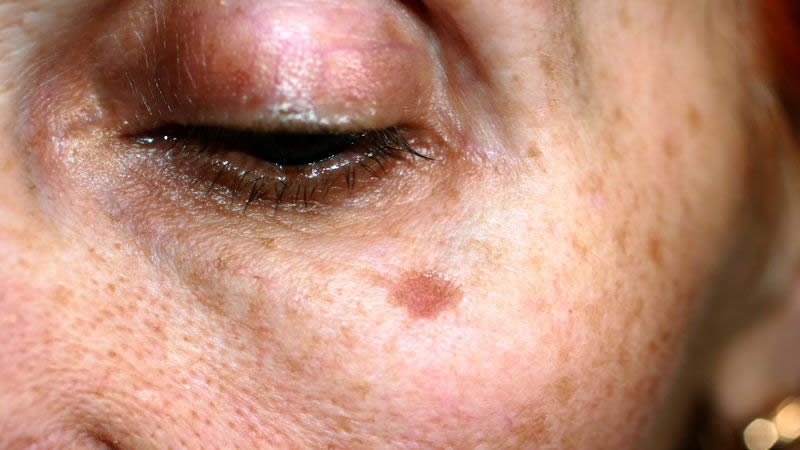
Does the sun age you? It does more than you think!
Does the sun age you? Firstly we need to understand that the body produces melatonin in response to UV exposure as a protective mechanism. This happens more easily in some people than others depending on your skin type. The biggest issue that UV exposure causes is free radical damage.
Even moderate exposure accelerates the aging of the skin, leading to more wrinkles, break down of collagen and sun spots (skin discoloration). Uneven pigmentation (a condition known as dyspigmentation or hyperpigmentation) and solar lentigines (more commonly known as age spots, sun spots, or liver spots ). UV radiation goes deeper into the skin and promotes some types of skin cancers. Unfortunately, there is no doubt the sun ages you.
Just enough for vitamin D, but no more
We certainly need sun exposure for vitamin D production, however, we don’t need that much. Check your sun exposure levels here.
How does the Sun age you?
So how does the sun age you? Excess sun exposure it not only aging to the face, (referred to as photoaging), but it can also harm the immune system.
Sunlight, composed of different types of radiation, including ultraviolet wavelengths, is an essential source of light and warmth for life on earth.
However, it has strong negative effects on human health. UV encourages malignant transformation of skin cells. It also suppresses the ability of the human immune system to detect and attack malignant cells.
Sunscreen lotions labeled broad-spectrum block against both UVA and UVB. Buyer beware, there is currently no standard for listing UVA blocking power. So how do you know if you are getting 100% protection? You aren’t!
Suncreen does not block all types of UV. So it is important to use clothing a hat, and shaded areas to increase your level of protection.
Sunscreen ingredients can cause free radical damage that contributes to aging
Another worry is that the inorganic chemicals that deflect sunlight (both UVA and UVB rays) penetrate deep into the skin and travel into the bloodstream.
Some of the chemicals in sunscreen have recently come under fire for possibly being carcinogenic (cancer-causing) or otherwise harmful, according to a report by the Environmental Working Group (EWG), an advocacy group based in Washington D.C.
Scientists found that oxybenzone absorbs into the skin and is present in urine long after sunscreen is applied.
This is only one of the many potentially harmful chemicals you will find in commonly purchased sunscreens.
A popular UV blocker ingredient is titanium dioxide. However in a preliminary study last year, titanium dioxide was shown to cause genetic damage in mice.
What is the best type of sunscreen?
The only way to prevent this risk would be to use a sunscreen that has altered the weight of the ingredient so it doesn’t pass into the bloodstream. Only a special manufacturer like Sisel International alters ingredients to make them a safe as possible.
New SAFE ingredients that can be used as UV blockers, unfortunately, have not been approved for use in Australia yet.
Sisel’s Actify 6000 Face and Neck Cream
I currently use Sisel’s Actify for day use on my face and neck and re-apply. It contains I also always wear a hat to minimise UV exposure.
In addition to conditioning and protecting ingredients, Sisel Actify 6000 has added sun-protection skin support ingredients. Ingredients such as octocrylene and ethylhexyl salicylate, defend against the harm sunlight may cause even before it can penetrate the skin.
I also know that this product is free from potentially harmful ingredients and works at the level needed.
UV Exposure Iron and Free Radicals
What has UV Exposure got to with iron?
How does the sun age you using iron? Pub med studies have shown a 3-fold increase in the iron content of human skin from sun-exposed areas as compared with non exposed body sites.
Check your safe level of UV Exposure
Chronic exposure of skin to UV increases levels of non-hemoglobin iron. Iron can act as a catalyst in oxidative reactions, promoting oxidative degradation of lipids causing free radicals. If free radicals are involved in UV-induced photodamage, then supplementation with antioxidants should help to combat this damage. Ref Two Sisel antioxidant products I love are Sisel’s Eternity (containing resveratrol) and Sisel H2 Stix. The Hydrogen Stix supports the body to neturalise free radicals such as the very dangerous hydroxyl radical. The hydroxyl radical can damage virtually all types of macromolecules. Researchers believe that resveratrol activates the SIRT1 gene. The SIRT1 gene is believed to protect the body against the effects of obesity and the diseases of aging. Ref
A final recommendation is don’t overdo it. Use common sense and check your optimum levels of exposure for healthy aging. Sisel also produces a product called the AGE Pill that contains ingredients shown to support the body against UV exposure.
Last Updated on May 3, 2019 by Katie Sisel Distributor
